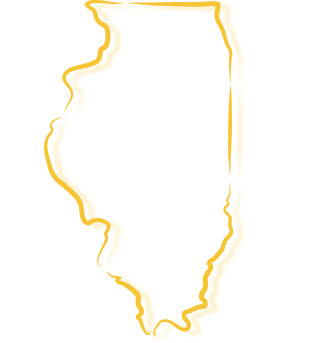Right of Way Car Crashes

By Zane T. Cagle | November 14, 2023 | Car Accidents, Featured, Personal Injury
Rules of the Road
We have rules of the roadway for one reason–safety. Nevertheless, traffic can often feel like a dangerous endeavor at times. Without a doubt, driving and riding in a passenger motor vehicle is one of the most dangerous things most of us do on a daily basis. Traffic codes have been developed over time in coordination with safety engineers, state and federal recommendations, and years of crash data study. That being said, if drivers do not follow the traffic codes, crashes will result. At any point in which vehicles merge or intersect, the risks of a crash rises dramatically. Missouri traffic code explains right-of-way rules so drivers can avoid colliding. When two vehicles are traveling the opposite way, the right of way rules instruct us to stay in the correct lane to avoid a head-on crash. When drivers fail to follow right-of-way rules, head on crashes and intersection crashes occur.
If you are not following the right-of-way rules, citations are the least of one’s worries. Crashes easily happen when driver fail to follow right-of-way rules.
The failure to follow right-of-way rules is the most common cause of car accidents. Any time vehicles can enter into the other’s lane of travel, the risk of crash increases greatly. There are some hard and fast rules that we should always be reminded.
Turning Left
Generally speaking, drivers who are turning left must yield the right-of-way. This rule applies whether you are at an intersection or turning into a residence or parking lot. Turning left requires that you yield prior to turning until it is “safe to do so”. If another car hits you, then by definition, “it was not safe to do so”. About the only time that drivers do not have to yield is when making a left turn and having a solid green arrow light at an intersection. As attorneys that represent those injured in car accidents, you should always keep a look out even when turning left on a green arrow. It is far too common that drivers just see red, green or yellow lights and proceed. Another too common problem is when drivers try to “beat a light” or coast through a yellow light. Frequently, we talk with a driver who was turning left on a green light and claim the other car “came out of nowhere”. It is an awful feeling to not see something as important as a vehicle. However, due to physics another car could not actually “come out of nowhere”. Granted, the physics explanation is not all that popular.
Some commerical delivery companies schedule their routes so that drivers never have to make a left turn in an effort to reduce the risk of crashes. It is an idea that has some success. While you might not be planning your route home to avoid every left turn, you must keep right-of-way rules in mind for safety.
Intersections
If you are entering an intersection with no traffic control lights, then whichever driver arrives at the intersection first has the right of way. Other traffic must wait until traffic clears and wait in turn after they arrive at the intersection. Clearly, riding the back of the car in front of you is not a great policy of proceeding. Riding the back of the car in front of you can also result in rear end collision. If you and the other driver arrive at the same time, you must yield the right of way in the intersection to the driver to your right. Failing to do so results in many quibbles and arguments but worse, serious injury crashes.
No, Accidents Don’t Just Happen
In spite of what the television commerical say, car crashes are rarely “Accidents”. The term “accident” is defined as “an event that happens by chance or that it is without an apparent or deliberate cause”. I have met very few people injured in a car crash that ever thought it was sheer coincidence and without cause. Human error is the number one cause of car crashes. Failing to follow a rule of the roadway whether it is losing control of the vehicle due to speed or intoxicants, or failing to yield, and failing to honor the right of way–are all causes of crashes. None of those things are sheer coincidence. Yes, insurance adjusters like to say “accidents happen” as if they just occur all the time without causes. They do this specifically so that one, you feel better about yourself if you were the cause of the crash and two, it helps shift and share the costs when folks are injured. That type of language becomes very important if you are the injured party. If you are hurt due to the error of another person, you may be offended if the adjuster just explains it away as “accidents happen”.
Critical Steps to AVOID in Dealing with an Insurance Adjuster:
In all honesty, you give just the basics when you talk with an insurance company: ie: name, address and date of the crash. Don’t give descriptions or statements and do NOT talk about your injuries with the adjuster. Why? Because the adjuster really does not care. Not that they are bad individuals, but their job is to begin evaluating and possibly devaluing your injury claim from the beginning. They are looking to check off boxes before you even know the extent of your injuries. If the adjuster asks if you are hurt and you are, then you simply say “yes, I am hurt and I am treating”. It is really none of the insurance company’s business as to where you are treating and for what injuries. There is time to inform the insurance company in due time. It is not as if the auto insurance company is going to step up and pay one bill as you go through treatment.
Do not discuss your medical treatment or status of treatment with any insurance company. If you have an injury, you absolutely will not know the full extent in the first days/ weeks after the crash. Furthermore, you certainly do not know how long it will take for you to heal. Everyone wants to be positive and hope for the best–it’s part of the healing. Do not rush your medical treatment or ask your medical team to accurately predict the future. If any of us could predict the future, we would have the lottery numbers and own islands in the Caribbean.
Do not discuss the body parts that are injured with the adjuster. If you start making statements about injuries but fail to mention your lower back, the adjuster will argue that is not applicable. You may be consumed with your broken leg and fail to notice your lower back is causing you problems if you have been in bed all week with a broken leg. The first days and weeks after your crash should not be full of pressure from an auto insurance company. Just do not do that to yourself.
Do not sign any medical authorizations for any auto insurance company. You do not want to sign an authorizations for an insurance company so that they can start rifling through your medical history. Again, hit the pause button until you have a better idea of what you and your medical team discover.
Do not share your health insurance information with the auto insurance company. There is no reason that your health insurance coverage means anything to the auto insurance company other than they know they can pressure you if you do not have health insurance. Also, the adjuster is looking to offset your medical costs with your health insurance. They talk about how they are going to pay medical bills they never intend to pay and try to settle with you for co-pays. Again, the medical bill reimbursement to your health insurance is far more than a co-pay.
Do not involve the insurance adjuster in any of your medical decisions. If you have read this far, you know the insurance adjuster does not have your best interest in mind when it comes to a bodily injury. The adjuster may be a really nice individual, but do remember that the goal of the insurance company is to pay low claims or deny them altogether. Making sure you are financially or physically whole again is not really their top concern.
How much is a Standard Car Crash Injury Worth?
There are lots of “calculators” on the internet.. Forbes published an article about the standard personal injury amounts. The problem with the article and the calculators is the definition of “standard” or “average”. In our work, we have found that no two cases are the same because no tow people are the same. Every injured client has a life, a story and a progression through their injury that is unique. Those injured in motor vehicle crashes cannot begin to “estimate” the worth of their injury without finding out three things. One, we know the extent of the injury. Two, how that person will heal. Three, what kind of coverage exists. In the first few days and weeks after a crash, an injured person does not know the answer to any of those questions. Most often, the injured person has no idea of the coverage of the other driver. One must remember that in Missouri, the insurance company does not have to disclose that information and you should question if they even offer to share that information.
You may assume the insurance adjuster has to tell you the truth—–do not assume any such thing. Do not assume everything the insurance adjuster tells you to be true. Most often when talking with an injured person, their own insurance company did not explain their coverage. A frequent question includes, “how much is a leg injury worth?” That is really hard to predict. Is it a broken leg or amputated leg? Did it require surgery? When it comes to asking how much a leg injury is worth, we ask ourselves–how much is my leg or my client’s leg worth? Thus, the nature of injury and treatment required impacts “worth”. There just aren’t any mathematical equations out there that truly reflect how much one’s leg is worth. Again, applying the term of “injury” to the spine, brain, knee and ankle are all relative as to the type and severity of the injury.
You can search endlessly online for a formula. Accurate formulas do not exist. Each person in a crash has a individual scenario and story. In spite of your family or friend’s car crash claim experience, each case is different. Results vary on the nature of the injury, the facts of the crash and honestly, the attorney.
After car crash, doesn’t it seem like the bare minimum that someone will listen and care about your car crash and provide information based on your best interest? Proving information with your best interest in mind is the key to that success. Please do not expect unbiased advice from any auto insurance carrier. As well, understanding your experiences is not a job for artificial intelligence or statistical averages. Our attorneys still evaluate each case by talking to one person at a time. It is important to listen to how the crash happened, gather evidence, and most importantly, learn about the medical treatment that a client have been forced to undergo. Generally, that medical treatment plan involves future treatment. All of this information is really overwhelming when you are hurt. Each person we represent has an entire story and life-changing experience to navigate.
Contacting a Car Crash Attorney
If you have been seriously injured in a car accident, you will need a car crash attorney. None of our clients “look forward” to working with us. If an individual has hired our firm, it is because something like an injury car crash has occurred. We understand that and clients often become friends because of process. Recovery is a long process for seriously injured. After you have been hurt, arguing with the auto insurance company rarely goes well. We argue and deal with the insurance company so that you do not. Auto insurance adjusters are far better at the property damage portion of your car crash claim. Vehicles and damage are much easier for the adjuster because the property is stagnant, meaning the vehicle will not improve on its own or seek medical treatment. Property claims are common. If your actual body is injured and you require medical treatment beyond the initial treatment, you are going to need to involve an attorney for your best interest and sanity.
If you have been injured in car crash, take advantage of free consultations with a personal injury attorney. We offer free consultations and not everyone needs a lawyer. We want everyone to have the information in the beginning. One day of operating with an insurance adjuster is a day too long if you do not have a thorough understanding. Most people assume the insurance adjuster will try to be fair and be honest–neither of which are common.
Call us toll free 1.800.685.3302 or locally 314.276.1681
Contact Us Today
The Cagle Law Firm serves accident and injury clients throughout St. Louis and the greater St. Louis metro area, including St. Louis Counties of Chesterfield, Wildwood, Eureka, Ladue, Olivette, Clayton, Kirkwood, Fenton, Affton, and Jefferson Counties of Arnold, High Ridge, Antonia, House Springs, and the eastern Missouri and southern Illinois communities. If you or your family needs legal assistance with your personal injury case, call The Cagle Law Firm at (314) 276-1681 or use our online contact form to request a free case review or get more information.
Areas Served
The Cagle Law Firm – Missouri
The Cagle Law Firm – Illinois
The Cagle Law Firm – Kentucky
CONTACT THE CAGLE LAW FIRM TODAY
Request your FREE CASE REVIEW today by calling (314) 276-1681 or by sending a message through the site contact form. Your contact info stays private and is only used to reply to your inquiry.
Whether you need information about a new injury or existing injury, our lawyers answer your questions with no-risk and no followup marketing.
Free Consultations and Case Reviews
Questions? Ask An Attorney
Fields marked with an * are required
Copyright © 2025 St. Louis Personal Injury Lawyers | The Cagle Law Firm. All rights reserved.
Disclaimer | Site Map | Privacy Policy
Get a free case review with St. Louis' best personal injury lawyers to help you win top compensation





